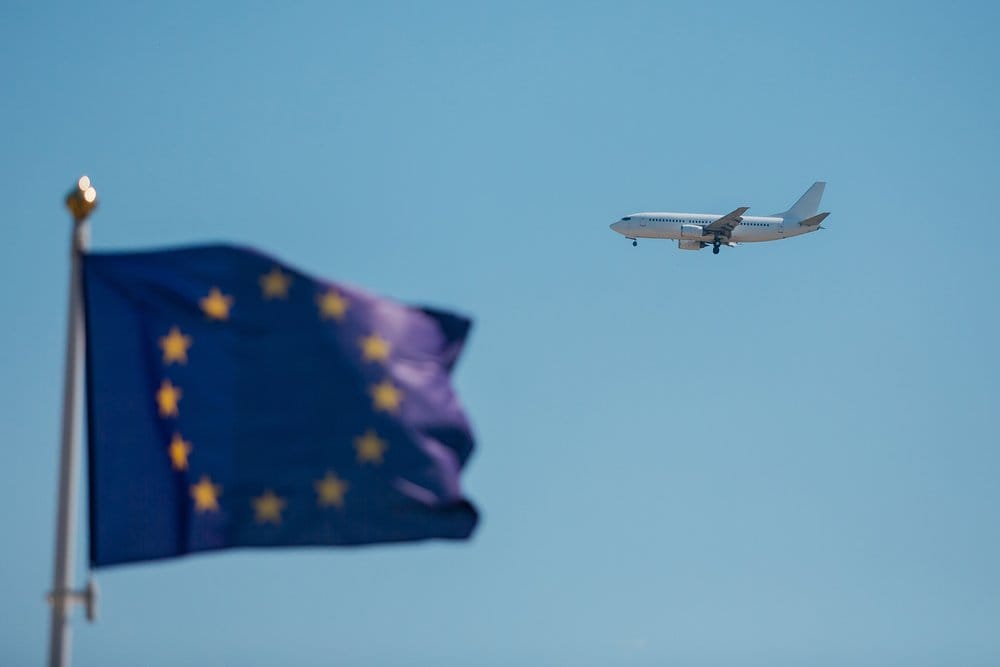Twenty-one major European carriers pledged to revise claims that individual flight CO₂ emissions can be neutralized or offset through consumer payments.
Commitments target use of “sustainable aviation fuels”, green marketing language, and transparency of emissions-calculators under the EU’s Unfair Commercial Practices Directive.
National consumer authorities will monitor airline implementation and potential enforcement action will follow non-compliance, raising stakes for investor and corporate ESG governance.
Key impact points:
Twenty-one major European airlines have agreed to stop using misleading environmental claims following talks with the European Commission and consumer authorities.
The commitments restrict terms such as “sustainable aviation fuels” and prohibit claims that individual flights can be made carbon neutral through offsets or passenger contributions.
National regulators will monitor compliance, with potential enforcement actions for non-compliance, setting a precedent for green marketing across industries.
Brussels Targets Airline Green Claims
Twenty-one European airlines have agreed to overhaul their environmental marketing practices after EU consumer authorities found that many claims could mislead passengers about the climate impact of air travel. The agreement follows months of dialogue between the European Commission and the Consumer Protection Cooperation Network, which includes national agencies from Belgium, the Netherlands, Norway, and Spain.
Carriers including Air France, KLM, Lufthansa, EasyJet, Ryanair, SWISS, and TAP are among those committing to withdraw or clarify their claims. The move responds to mounting concern over how aviation companies present their sustainability efforts to consumers, especially in relation to offsets and carbon neutrality.
What Airlines Have Agreed
The airlines will stop promoting the idea that a specific flight’s carbon emissions can be neutralised or offset through consumer payments to climate projects or the purchase of alternative fuels. They will also ensure that any use of the term “sustainable aviation fuel” is supported by clear evidence and context.
In addition, airlines must refrain from vague or absolute environmental language, provide transparent emissions data, and substantiate all claims about future sustainability targets with timelines and measurable steps. Any carbon calculations offered to consumers must now be based on transparent methodologies and supported by scientific data.
RELATED ARTICLE: EU Eases Compliance and Delays Rollout of Deforestation Regulation
Policy Context and Consumer Governance
The action follows a 2023 complaint from the European Consumer Organisation, which alleged that several airlines made misleading environmental claims in violation of EU consumer law. The agreement is grounded in the Directive on Unfair Business-to-Consumer Commercial Practices, which prohibits misleading actions and omissions in marketing.
National consumer authorities will monitor implementation and may take enforcement action against airlines that fail to comply. Beyond individual cases, the Commission and its partners intend to assess whether other airlines operating in the Single Market are following similar practices, ensuring consistent standards across the sector.
Implications for Business and Investors
For airlines, the commitments underscore the growing regulatory scrutiny of environmental marketing and the financial risks tied to greenwashing. Claims about carbon-neutral travel, once seen as a competitive edge, now carry compliance and reputational exposure. Airlines will need to align sustainability messaging with verifiable operational progress on emissions reduction and fuel transition.
For investors and corporate boards, the development highlights how ESG transparency standards are expanding into consumer communication. Companies relying on offset-based marketing or future-pledge narratives may need to reassess disclosure quality and ensure that all claims can withstand regulatory review.
A Wider Signal for Global Regulation
Though the commitments apply within the EU, their influence extends beyond Europe’s borders. Regulators in other jurisdictions are likely to watch the implementation closely as a model for addressing misleading sustainability claims across industries.
As aviation accounts for roughly 2 to 4 percent of global greenhouse gas emissions, the decision represents a key step toward aligning consumer information with genuine decarbonization goals. The EU’s coordinated enforcement approach demonstrates how green marketing oversight is evolving into a central pillar of corporate accountability — one that C-suite leaders, sustainability officers, and investors can no longer treat as peripheral.
Follow ESG News on LinkedIn

